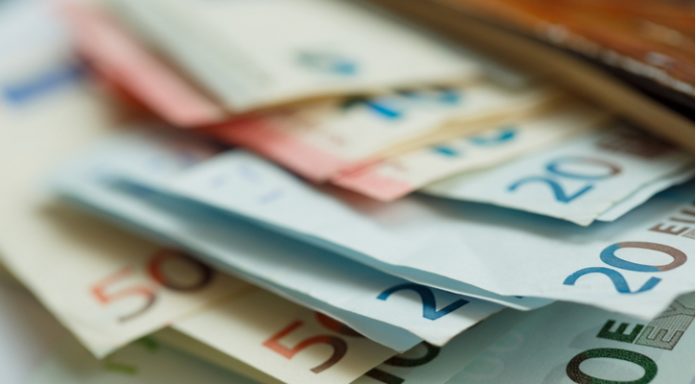The pound euro exchange rate took another step lower on Friday, after investors cheered higher inflation in the eurozone. The pound dropped 0.3% versus the euro to close at €1.1148, meaning that the exchange rate lost 0.35% across the week.
| What do these figures mean? |
|---|
|
When measuring the value of a pair of currencies, one set equals 1 unit and the other shows the current equivalent. As the market moves, the amount will vary from minute to minute. For example, it could be written: 1 GBP = 1.13990 EUR Here, £1 is equivalent to approximately €1.14. This specifically measures the pound’s worth against the euro. If the euro amount increases in this pairing, it’s positive for the pound. Or, if you were looking at it the other way around: 1 EUR = 0.87271 GBP In this example, €1 is equivalent to approximately £0.87. This measures the euro’s worth versus the British pound. If the sterling number gets larger, it’s good news for the euro. |
A resurgence in market concerns over a no deal Brexit weighed on the pound at the end of last week. As another round of Brexit negotiations kicked off, investors turned their attention once again to the increasing possibility of the UK crashing out of the European Union with no agreement in place with Brussels. With the clock ticking towards the self-imposed October deadline, the British government is still too divided over what direction Brexit should take to be able to reach an agreement. As a result, a no deal Brexit looks likely not through choice but through the inability of the two sides to agree.
Business leaders and leading economists have frequently warned over the dire impact that a no deal Brexit could have on the British economy and therefore the pound.
Not even unemployment falling to a 43-year low and a strong jump in retail sales over the past week have been able to lift the pound, indicating just how concerned market participants are over Brexit.
| Why is a “soft” Brexit better for sterling than a “hard” Brexit? |
|---|
| A soft Brexit implies anything less than UK’s complete withdrawal from the EU. For example, it could mean the UK retains some form of membership to the European Union single market in exchange for some free movement of people, i.e. immigration. This is considered more positive than a “hard” Brexit, which is a full severance from the EU. The reason “soft” is considered more pound-friendly is because the economic impact would be lower. If there is less negative impact on the economy, foreign investors will continue to invest in the UK. As investment requires local currency, this increased demand for the pound then boosts its value. |
The UK economic calendar is short of high impacting data today meaning Brexit developments, or the lack of, could drive price movement.
Euro Higher As Turkish Crisis Stabilises
The euro was on the back foot at the beginning of last week as the sharp decline in the Turkish lira created fears of contagion among investors. A $15 billion offer of financial support from Qatar eased these concerns by the end of the week, allowing euro traders to focus on Friday’s inflation data.
Eurozone inflation increased in July to 2.1%, up from 2% in June. This above the European Central Bank’s (ECB) 2% target, meaning that the odds of an interest rate hike by the ECB have risen. However, the core inflation figure, which discounts more volatile items such as food and fuel remained constant t at 1.1%.
| Why do raised interest rates boost a currency’s value? |
|---|
| Interest rates are key to understanding exchange rate movements. Those who have large sums of money to invest want the highest return on their investments. Higher interest rate environments tend to offer higher yields. So, if the interest rate or at least the interest rate expectation of a country is relatively higher compared to another, then it attracts more foreign capital investment. Large corporations and investors need local currency to invest. More local currency used then boosts the demand of that currency, pushing the value higher. |
Provided there are no new developments in the Turkish financial crisis, investors will look towards German producer price data for further clues over inflation at wholesale level in the powerhouse of Europe. Strong figures could boost the euro.
This publication is provided for general information purposes only and is not intended to cover every aspect of the topics with which it deals. It is not intended to amount to advice on which you should rely. You must obtain professional or specialist advice before taking, or refraining from, any action on the basis of the content in this publication. The information in this publication does not constitute legal, tax or other professional advice from TransferWise Inc., Currency Live or its affiliates. Prior results do not guarantee a similar outcome. We make no representations, warranties or guarantees, whether express or implied, that the content in the publication is accurate, complete or up to date. Consult our risk warning page for more details.
This article was initially published on TransferWise.com from the same author. The content at Currency Live is the sole opinion of the authors and in no way reflects the views of TransferWise Inc.





